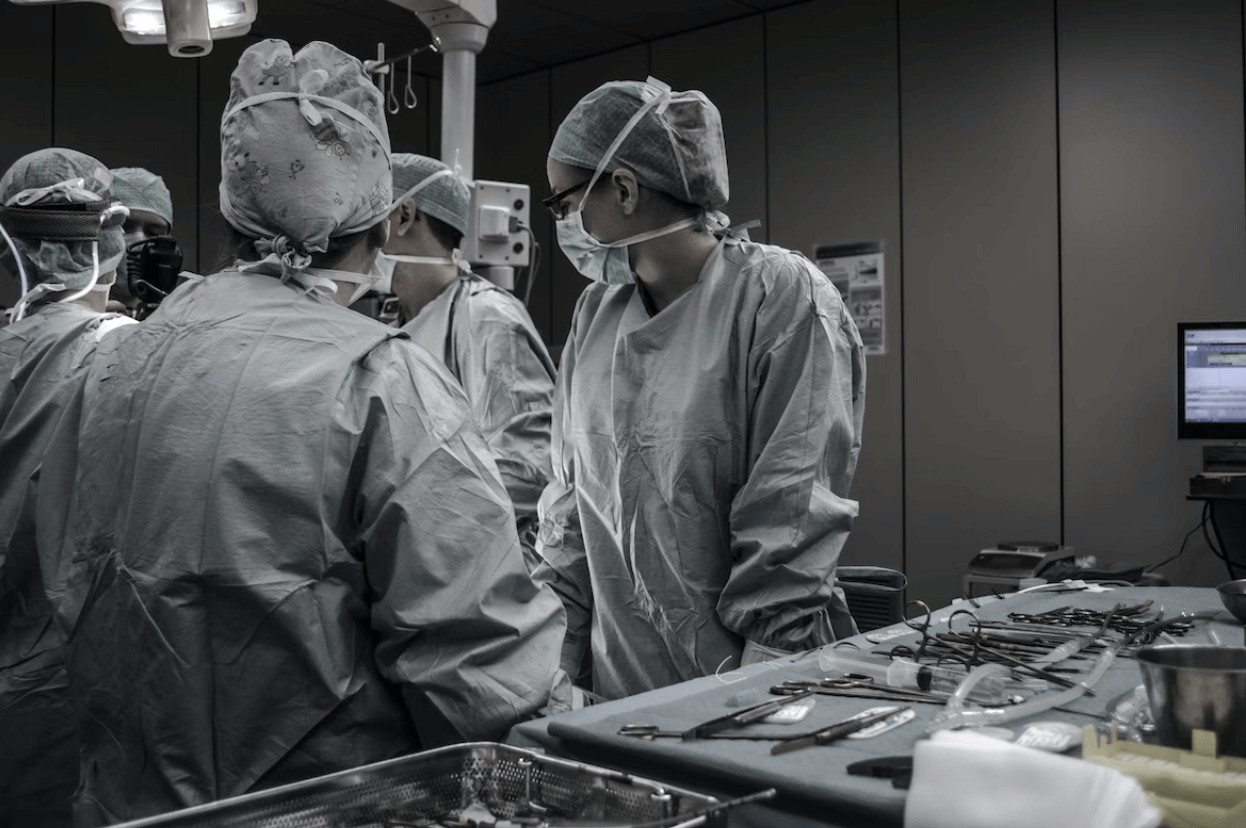Medical technology has come a long way, and it now offers many surgical procedures that can improve your quality of life. If you are suffering from an ongoing health issue, then discussing potential surgery with your doctor may be the answer you need to lead a more fulfilling existence. Your physician will work out which procedure is best for you based on your individual situation. All these interventions could have a huge effect in improving both physical and mental well-being; therefore if this feels like something beneficial for you, communicate with your medical provider as soon as possible about what options are available to you!
1. Joint replacement
Joint replacement can often be the answer to resuming life with full mobility. For many, a hip replacement is a large solution to a better quality of life. It’s an excellent way to regain lost mobility, increase ease in walking or running, and even get back into certain hobbies and activities. As such, bilateral hip replacement provides tremendous value for those no longer able to partake in everyday activities that make life so rich. With proper preparation for this procedure and managed care during recovery, bilateral hip replacement can quickly become part of one’s distant past with newfound freedom from pain due to daily movement limitations.
2. Spinal fusion
Spinal fusion is a complex surgical procedure used to treat a variety of conditions affecting the back or spine. This procedure requires the permanent joining, or “fusing,” of two or more vertebrae, creating a single bone that is stabilized with rods, screws, and other types of hardware. The goal of spinal fusion surgery is to reduce pain and restore stability to the affected area. Many patients who undergo this procedure experience an improved quality of life due to reduced or eliminated symptoms such as nerve-related pain, scoliosis, instability, spondylolisthesis, and other degenerative spine conditions. While spinal fusion can be intimidating and carries certain risks including infection and postoperative complications, the long-term benefits for many patients far outweigh any potential drawbacks.
3. Bariatric surgery
Bariatric surgery is an increasingly popular procedure among those trying to lose weight, thanks to its ability to help people achieve long-lasting results. Over the past two decades, bariatric surgery has emerged as a viable treatment; research indicates that it is both safe and effective when administered by well-trained medical professionals. With bariatric surgery, dieters can eat less and lose weight faster; many studies have found that patients have greater success in long-term weight management than those who use other diet plans or diets with fat-reducing drugs alone. Additionally, for those with significant obesity and related conditions such as type 2 diabetes, bariatric surgery has proven particularly successful in achieving health improvements. Despite its benefits, consulting with a doctor for thorough consideration before making any decision about bariatric surgery is paramount.
4. Heart bypass surgery
Heart bypass surgery is an intimidating procedure. As a writer, I have often heard from my peers about the experience of facing such a complex and emotionally difficult medical feat. Even though it’s not impossible to go through heart bypass surgery successfully, there can be complications and potential risks that must be considered before going to the operating room. It’s important for patients and their families to educate themselves on the process of treatment – how many times will they need to undergo the operation? What kind of recovery time is involved? How successful has this procedure been in other similar cases? All these questions should be taken into account before deciding if heart bypass surgery is right for you or your loved one.

5. Kidney transplant
Kidney transplants can be life-saving measures for those suffering from end-stage renal disease. An organ donor donates a kidney to replace the failing one and restore this individual’s body to a healthy state. This is no small feat and often requires careful consideration with regard to selecting the right match between donor and recipient. It’s an incredibly important process, but there can be difficult decisions involved – the loved ones of donors must weigh the altruism of such an act against the health risks. Thankfully, medical knowledge in this field has advanced significantly over time, so these complex procedures can be performed with increasing levels of safety and success.
6. Eye-sight surgeries
From cataract surgery that is removing the clouding of the lens to a LASIK treatment that corrects vision, eye surgeries can help restore one’s sight and improve quality of life. Depending on the severity of the condition and type of surgery required, these treatments may be done with a laser or through more invasive procedures such as refractive lens exchange. In either case, it’s important for patients to consult their medical professionals beforehand and discuss the risks, benefits, and recovery process in order to make an informed decision. Furthermore, postoperative care is essential to ensure that the posted procedure gives optimal results. With advances in technology over time, these surgeries are becoming increasingly safe and successful.
Despite the fact that these surgeries have a high rate of success, they are not perfect. Complications can occur in cases such as infections and blood clots, or even hardware failure. Before undergoing any surgery it is essential to discuss with your doctor the risks involved so you know what to expect. Surgery requires long recovery times too, making sure you’re ready for the physical and mental strain this process will cause is key. Lastly, remember no surgical procedure comes without risk – despite how experienced doctors maybe there’s always an element of unpredictability due to unavoidable circumstances beyond everyone’s control.

